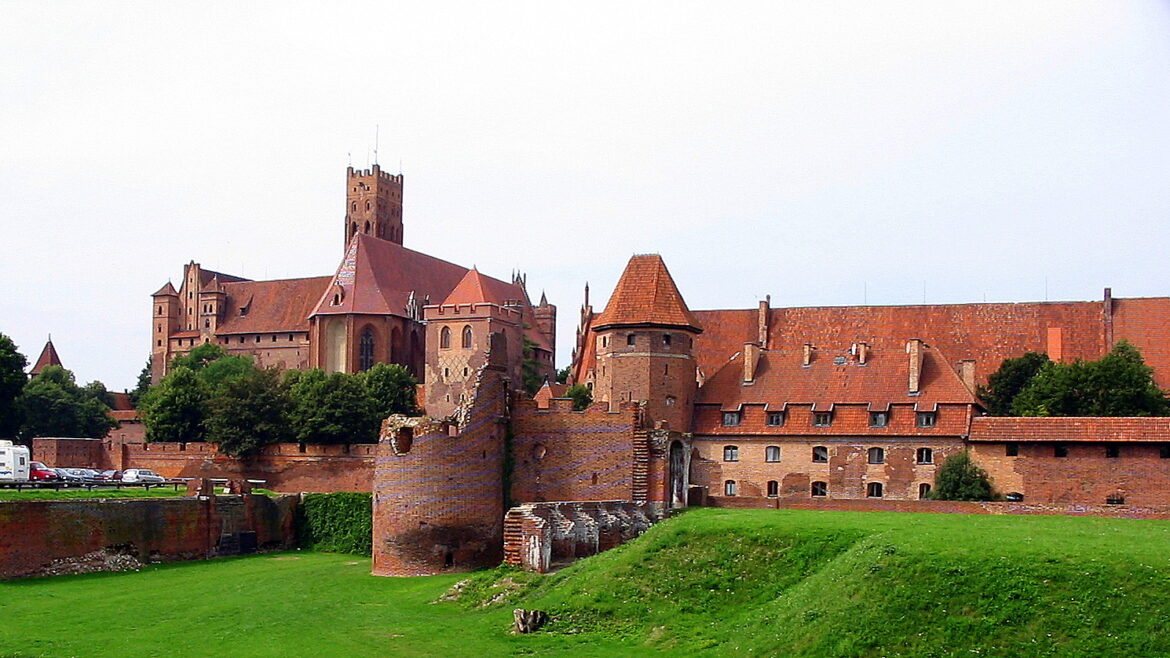After the conquest of East Prussia, the Order of the Hospital of the Blessed Virgin Mary of the German House in Jerusalem, commonly known as the Teutonic Order, brought to Poland in the 13th century, became a great threat to Poland as well. For it succeeded in establishing its own independent state on its borders, with claims to border areas,
Between 1320 and 1339, Polish-Teutonic relations were very tense. During this period, two trials took place between the Poles and the Teutonic Knights, with the aim of the Polish side regaining lands seized by the Teutonic Order. Both were conducted by Polish rulers – Władysław I Łokietek and his son Kazimierz III Wielki.
The first trial took place in Inowrocław, and the dispute at the time was over Gdansk Pomerania, which had been treacherously seized by the Teutonic Knights in 1309. As a result of the judges’ verdicts, they were ordered to return this land and pay high compensation. However, the Teutonic state did not recognise such rulings. A second panel of judges appointed in the same trial decided, in turn, to keep the Dobrzyń Land and Kuyavia with Poland, and to return Gdansk Pomerania, which this time was not agreed to by Casimir the Great, who intervened with the Pope.
The second trial took place in Warsaw in 1339. As many as 126 witnesses were then examined. This time, the verdict was very favourable to the Polish ruler – the Teutonic Knights were to give him all the seized land, cover the costs of the trial, and additionally pay compensation of 200,000 coins.
The Teutonic Order again did not recognise the verdict, opposing such decisions. The final settlement regarding the disputed lands was only brought about by the Treaty of Kalisz, concluded in 1343, by which Gdansk Pomerania passed into the hands of the Teutonic Knights as a “perpetual alms”.





